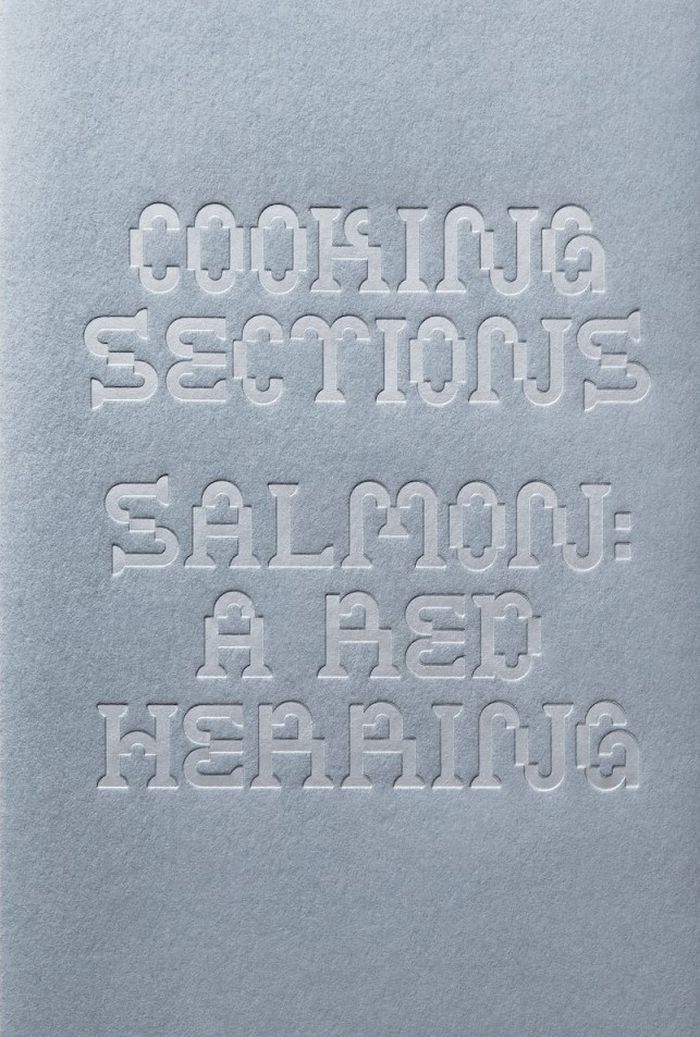Salmon: A red herring
$22.50
(disponible en magasin)
Résumé:
Salmon is usually thought of as pink. The colour is even called ‘salmon pink’. However, farmed salmon today would be grey. To make them the expected colour, synthetic pigments are added to their feed. Salmon are farmed in open nets, whose runoff has a severe impact on wild salmon populations, as well as on the seabed of the west coast of Scotland at large. Salmon is the(...)
Salmon: A red herring
Actions:
Prix:
$22.50
(disponible en magasin)
Résumé:
Salmon is usually thought of as pink. The colour is even called ‘salmon pink’. However, farmed salmon today would be grey. To make them the expected colour, synthetic pigments are added to their feed. Salmon are farmed in open nets, whose runoff has a severe impact on wild salmon populations, as well as on the seabed of the west coast of Scotland at large. Salmon is the colour of a wild fish which is neither wild, nor fish, nor even salmon. The changing colours of species around the planet are warning signs of an environmental crisis. Many of these alterations result from humans and animals ingesting and absorbing synthetic substances. Changes in flesh, scales, feathers, skin, leaves or wings give us clues to environmental and metabolic transformations around us and inside us. Continuing our work on the Isle of Skye, this project questions what colours we expect in our ‘natural’ environment. It asks us to examine how our perception of colour is changing as much as we are changing the planet.
Bouffe
$42.00
(disponible en magasin)
Résumé:
"Empire shops" were first developed in London in the 1920s to teach the British to consume foodstuffs from the colonies and overseas territories. Although none of the stores ever opened, they were intended to make previously unfamiliar produce and products—sultanas from Australia, oranges from Palestine, cloves from Zanzibar, and rum from Jamaica—available in the British(...)
Bouffe
avril 2018
Cooking Sections: The Empire Remains shop
Actions:
Prix:
$42.00
(disponible en magasin)
Résumé:
"Empire shops" were first developed in London in the 1920s to teach the British to consume foodstuffs from the colonies and overseas territories. Although none of the stores ever opened, they were intended to make previously unfamiliar produce and products—sultanas from Australia, oranges from Palestine, cloves from Zanzibar, and rum from Jamaica—available in the British Isles. "The Empire Remains Shop" speculates on the possibility and implications of selling back the remains of the British Empire in London today.
Bouffe

